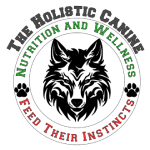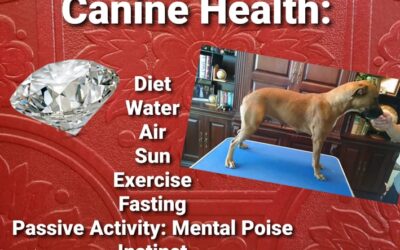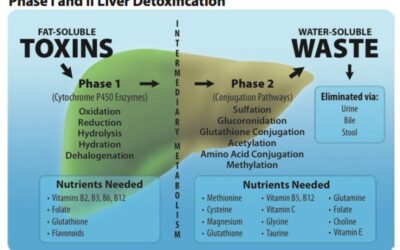Puppies and adult dogs require essential micro nutrients in very specific amounts for proper growth and development, cellular function and methylation, epigenetic gene expression, metabolism, tissue and organ function, skeletal maintenance and repair, brain development and function, and so much more. The cultivation of optimal health should be the goal of every pet parent with diet being the foundation stone for that goal.
The following nutrient list is based on the NRC’s recommended allowance (RA) as found in “Nutrient Requirements of Dogs & Cats,” Merck Veterinary Manual, and FEDIAF, The European Pet Food Industry Federation. I have added to the nutrient requirement list the remaining vital nutrients that the NRC and FEDIAF have not listed. These missing nutrients are irrefutably essential to health and life. It is my belief that these missing nutritional components are one of the biggest factors driving canine disease, cancer, and the increasing mortality rate.
The following list is based on my own research. The missing yet very-much-essential nutrients are required for the prevention of chronic disease, the cultivation and maintenance of optimal health, and increased longevity in dogs. Everything in BOLD is either my addition (missing essential nutrients from the NRC list) or is a modification.
The nutrient requirements below are per every 1,000 kcal consumed.
Mobile phone users, please click on the PDF link for proper nutrient table alignment.
| Nutrient | Adult Dog | Puppies |
| Vitamin A B1 Thiamine B2 Riboflavin B3 Niacin B5 Pantothenic Acid B6 Pyridoxine Biotin1 Folate B12 Cobalamin Choline Vitamin C2 Vitamin D3 (cholecalciferol3) Vitamin E Vitamin K2 (menaquinone4) | 380 RE → 16,000 RE 0.56 mg 1.4 mg 4.25 mg 4 mg 0.4 mg 2.5 mg 68 mcg 8.75 mcg 425 mg 40 mg 3.4 mcg → 20 mcg 7.5 mg 410 mcg | 380 RE → 3,750 RE 0.34 mg 1.4 mg 4.25 mg 4 mg 0.4 mg 2 mg 68 mcg 8.75 mcg 425 mg 40 mg 3.4 mcg → 20 mcg 7.5 mg 410 mcg |
| Nutrient | Adult Dog | Puppies |
| Calcium Phosphorous Potassium Sodium Chloride Magnesium Iron Copper Zinc Manganese Iodine Selenium Molybdenum5 Silica6 Sulfur7 | 1,200 mg 1000 mg 1,250 mg 250 mg 400 mg 190 mg 9 mg 1.8 mg 20 mg 1.5 mg 220 mcg 90 mcg 45 mcg 118 mg 1.75 mg | 3,000 mg 2,500 mg 1,300 mg 550 mg 720 mg 150 mg 22 mg 2.7 mg 25 mg 1.7 mg 220 mcg 90 mcg 40 mcg 118 mg 2 mg |
1 Biotin is an essential vitamin (also known as vitamin H) that is required for proper growth, muscle development, digestion, skin health, health of the coat and fur, for the prevention of allergies and allergic conditions, among others. Thus, I believe it belongs in the list for required nutrients. Biotin deficiency is most often the cause for skin disorders as well as skin and allergic conditions including itching. There is a popular concern about feeding raw eggs to dogs due to the enzyme avidin. Avidin is found only within the egg white; therefore, feeding dogs egg whites without the yolk is never recommended. Because the yolk is rich in biotin, feeding whole eggs has not been implicated in biotin deficiency. Nevertheless, I prefer to offer dogs biotin-rich egg yolks regularly (and even daily) while feeding the egg white only on occasion. Cooking the egg white will deactivate the enzyme.
2 While dogs can manufacture their own vitamin C, the amounts produced are not sufficient for the prevention of disease or health maintenance. Clinical observations have found that stress and illness are the greatest causes for vitamin C depletion in dogs. According to Bob Griswold and Nancy Kerns for Whole Dog Journal, “Stress is the best-known cause of vitamin C depletion in dogs. Physical stress comes in many forms: gestation, lactation, growth, hard work (dogs used for herding, hunting, tracking, etc.), vaccinations, injuries, tail-docking or ear cropping, or illness. Emotional stress, whether caused by relocation, weaning, or demanding training, can also deplete this reserve. In fact, researchers can measure the level of stress a dog experiences by measuring the degree of depletion of the vitamin in the dog’s blood. Conversely, many studies have found that dogs (as well as humans) that are supplemented with vitamin C show greater resistance to disease, and a better ability to recover from injuries or illness.” Thus, it is my professional opinion that dogs must receive dietary sources of vitamin C daily or receive a whole-food source vitamin C supplement.
3 Dogs must receive vitamin D3, cholecalciferol, the natural form of vitamin D for optimal absorption. Vitamin D2, ergocalciferol, does not function in the same way as naturally occurring vitamin D. Utilization is poor causing ergocalciferol to accumulate in the body running the risk of overdose with fatal toxicity. In addition to hypervitaminosis, D2 can exacerbate malabsorption issues and conditions leading to complications and further conditions. Thus, it is my professional opinion that dogs receive only cholecalciferol from food sources, and if needed, a Vitamin D3 supplement for infants (human-grade) in a 400 IU dose.
4 There are two natural forms of vitamin K. K1 (phylloquinone) is plant-source vitamin K and is absorbed at a rate of LESS THAN 10% in humans. Based on this information, absorption in dogs would be next to nil. K2 (menaquinone) is an animal and bacteria-source of vitamin K that experts and scientist believe is better absorbed. Based on this, K1 is not a recommended source for dogs. Dogs, therefore, require menaquinone which is only found in animal foods and fermented foods.
5 Molybdenum is essential for life. Evidence based on extensive research over the last twenty years is conclusive that this trace mineral is essential for optimal health. Without sufficient molybdenum, health will suffer. This trace mineral is essential for a number of bio-chemical processes, optimal cell function, the development of the nervous system, the activation of digestion enzymes, is a cofactor for the utilization of iron (especially important in dogs), it partners with riboflavin for the production of hemoglobin, is required for nitrogen metabolism, and more. Molybdenum is found in bones, liver, and kidney, ideal food sources for dogs.
6 Silica is essential, period. Dr. Barbara Hendel is quoted as stating, “Silica is the most important trace mineral for human health.” Now imagine this for dogs which have a great need for collagen elasticity in all their connecting tissues, tendons, and cartilage. With the high rate of joint deterioration, hip conditions and dysplasia, arthritis, and cranial cruciate ligament (CCL) disease in dogs, silica is not an option. Silica is essential for bone growth (initiates bone growth in puppies), connective tissues, collagen, ligaments, and cartilage, it stimulates DNA synthesis in osteoblasts, and is required for tissue detoxification (aluminum especially). Silica is found in bones, connective tissues, and diatomaceous earth (DE). Feeding bones is essential to the health of a dog. Adding food-grade DE to meals is an excellent supplement for silica with the added bonus of worm prevention.
7 Sulfur is vitally important to dogs which require large amounts of amino acids. Sulfur is essential for bones and bone density, joints, is the dominant component of connective tissues, is a natural anti-inflammatory, is necessary for cell, tissue and organ function, promotes the transportation of oxygen across cell membranes, and more. Bone, connective tissues, meat, fish, eggs (especially the white), and methylsulfonylmethane (MSM) supplements are dietary sources of sulfur for dogs.
©2019 Kimberly Lloyd, PhD, BCHHP, Cert Raw Dog Food Nutritionist



